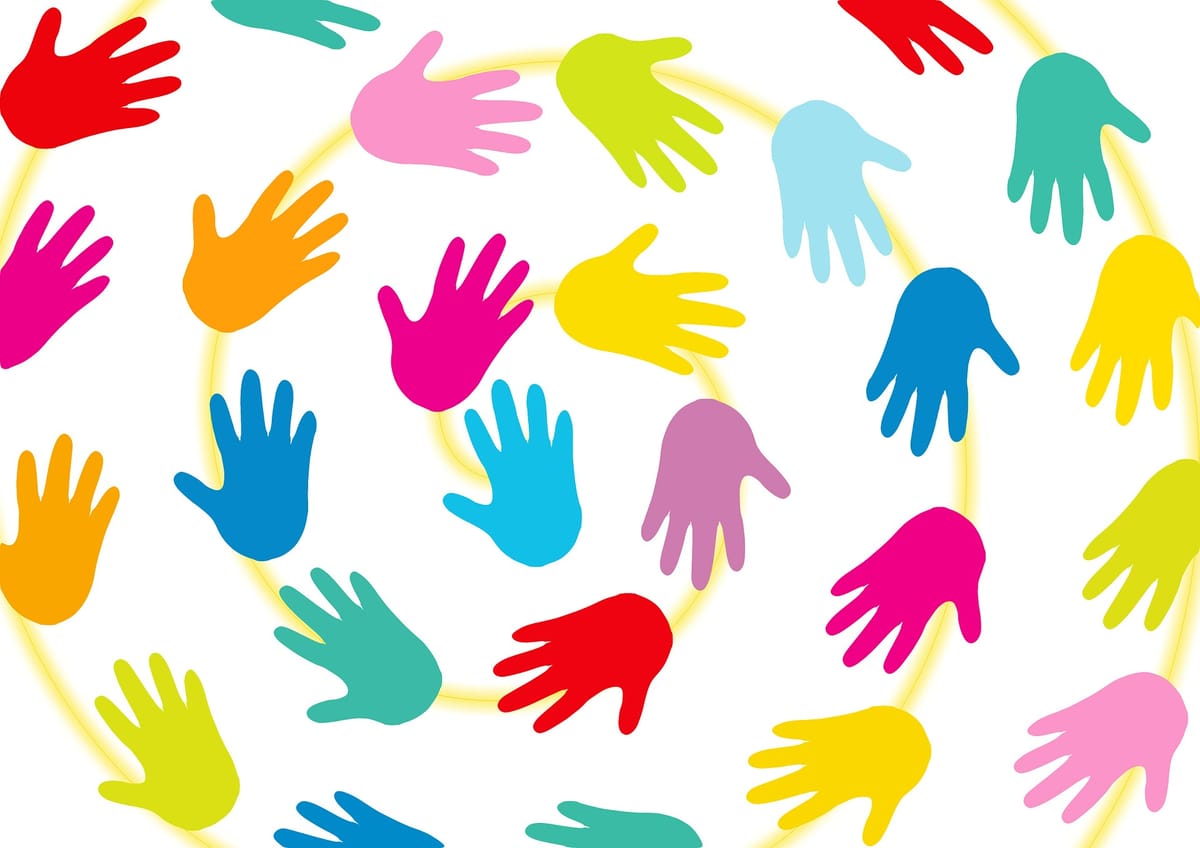The Bonobo Revolution: Why Cooperation Beats Confrontation
What if we solved societal conflicts like bonobos do: with cuddling instead of fighting, sharing instead of hoarding, connection instead of competition?

Sounds crazy? Maybe. But after reflecting on activism, system critique, and our current problems, I’m convinced we can learn more from our peaceful primate cousins than from any economic theorist.
Progress, but for Whom?
Let me start with a concrete example that shows how our system systematically excludes people. As a wheelchair user with limited hand mobility, I experience daily how the tech world forgets an entire group of people: More and more services exist only as smartphone apps. Web versions? Vanishing. “Mobile First” often means “Mobile Only” for me.
Why? Because I can only use touchscreens through workarounds. Because mouse and keyboard are essential tools for me, not nostalgic relics. Because a large screen means accessibility for me, not luxury.
But it’s not just about me. It’s about people with various motor impairments who need precise mouse control. People with visual impairments whose screen readers work better with websites than apps. Everyone who can’t afford expensive smartphones or whose old devices no longer support modern apps.
“Mobile First” is fundamentally a capitalist project: Apps enable more tracking, app stores collect commissions, and lock-in effects bind users to platforms.
The Root Problem: Power and Its Parasites
This tech exclusion is just a symptom of a much larger problem. Everywhere we see how power concentration leads to exclusion. Unscrupulous people push toward power, and the system rewards them for it. Capitalism has created a perfect machine that promotes empathy-less leadership.
The seemingly simple solution — “Throw them all out!” — isn’t possible without violent upheaval, and even then the problem will return. New power-hungry people move up; the system produces them on an assembly line. Violence only reproduces the problem. What we need is system change, not personnel rotation.
The Activism Paradox: When We Fight Ourselves
The frustrating part: While we argue about the right strategy, the powerful laugh at us. I see this problem constantly. In tech communities we argue about the “right” kind of open source while Big Tech harvests our data. Activists cancel each other over wording while the planet burns. The left tears itself apart over identity politics vs. class struggle while the right marches in unity.
“Divide et impera” — divide and rule. Works for millennia, still works today. We fight those we can reach (each other) instead of those we should reach (the powerful). And our communication style prevents exactly the unity we need.
What if we tried something different? Instead of dismissing or attacking those we disagree with, what if we approached change through radical understanding? Instead of immediately correcting someone’s analysis, what if we asked: “Who do you think benefits most from these divisions?” Using questions and gentle nudges, we could help people trace their worries back to the real power structures behind them.
The Bonobo Alternative: Radical Tenderness as Resistance
Here’s where bonobos come in. These fascinating primates have developed a society based on cooperation instead of competition. They solve conflicts through physical closeness. They share resources naturally. They live in matriarchal structures where care is central. And yes, they have lots of sex — as social lubricant, conflict resolution, and expression of connection.
What can we learn?
Solidarity over perfection: We don’t have to agree on everything. 80% common ground is enough. The rest is diversity, not weakness.
Care at the center: Care work, emotional support, mutual aid — these should be our priorities, not productivity and profit.
Decentralized structures: No alpha animals making all decisions. Power rotates, decisions are made together.
Joy in resistance: Activism doesn’t always have to be serious and exhausting. Cuddle demos instead of marching columns? Why not!
Open Source and the Fediverse as Living Examples
In my work with open source and decentralized technologies, I already see approaches to this philosophy. When we share code instead of hoarding, when communities develop projects together instead of competing, when knowledge flows freely instead of hiding behind paywalls — we’re already living a piece of bonobo society.
Projects like the Fediverse show: It works without Zuckerberg and Musk. Decentralized, community-owned, on equal footing. That’s my vision realized digitally!
The Way Forward: Small Steps, Big Vision
We won’t overthrow the system overnight. But we can start living differently:
In our communities: Solve conflicts through closeness, not exclusion. Celebrate successes together. See mistakes as learning opportunities.
In technology: Accessibility as standard, not add-on. Web for all instead of apps for few. Build decentralized alternatives.
In activism: Build bridges instead of deepening trenches. Accept the 20% differences, build on the 80% commonalities.
In daily life: Normalize sharing. Prioritize care. Refuse competition where possible.
Make Love, Not War — But Do It Right
The world is burning. Fascism is marching again. The climate is collapsing. The rich get richer. It would be easy to despair.
But maybe now is exactly the moment for radical tenderness. For solidarity with imperfection. For bonobo energy in a chimpanzee world.
Let’s hack systems instead of people. Let’s cuddle instead of fight (except with those at the top — they don’t need bonus cuddles). Let’s build a world where everyone has a place — whether they prefer apps or websites, whether they walk or roll, whether they’re perfect activists or still learning.
The revolution won’t be tweeted. It will be cuddled. 🐵💕
What do you think? Too radical? Too cuddly? Share your thoughts below. And if you like it: Share this post. Not because you have to, but because sharing is bonobo-style.